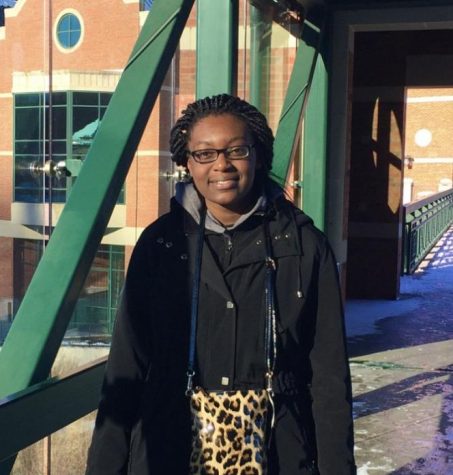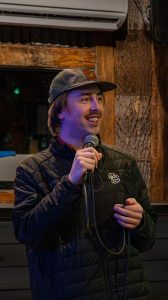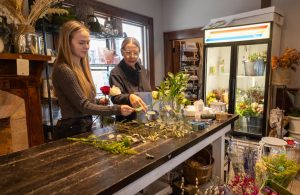Local organizations provide support to victims of domestic violence in the High Country
April 12, 2020
According to the National Domestic Violence Hotline, 24 people per minute are victims of rape, physical violence or stalking by an intimate partner. That’s more than 12 million people affected over the course of a year. Additionally, some incidents go unreported.
Local organizations like OASIS, Legal Aid of North Carolina and the Red Flag Campaign want to help those who experience domestic or sexual abuse.
Jonathan Perry and Rachael Van Camp are staff attorneys in Boone and work for the Legal Aid of North Carolina. As attorneys, they assist the community by enforcing their rights as citizens. They also help with case proceedings. Perry oversees hundreds of cases in Watauga County and most of them pertain to domestic or sexual violence.
According to the National Sexual Violence Resource Center, 81% of women and 35% of men report significant short or long term impacts such as Post – Traumatic Stress Disorder. Perry and his team offer free legal clinics for those clients. Free clinics are every Friday between 2 p.m. and 4 p.m., at 171 Grand Boulevard. This location is behind the Jones Community House.
“These clinics give individuals the ability to speak freely to experienced attorneys about their legal rights,” Perry said.
Domestic abuse comes from the same category but has two different meanings. Domestic abuse is repeated behaviors performed by one partner who possesses power over another partner in an intimate relationship such as gaslighting, physical violence like burning, shoving, pushing, slapping, punching, name-calling, mocking, or intimidating language.
OASIS is a nonprofit organization that serves survivors of domestic and sexual abuse in Watauga and Avery counties. OASIS provides emergency services, educates families and friends hope to create a community that supports survivors. Maggie Watts is a volunteer at OASIS and said OASIS’ services are not only for the local community, but App State students as well.
“Students can also use our services because that’s not something that widely realized by the student population,” Watts said. “So even if people know about OASIS they might not know that students are eligible for our programs.”
OASIS welcomes anyone who in need of their services, provides housing to those who are in danger. Watt said that housing is either temporary or permanent.
Those who want temporary or permanent housing must be actively dealing with interpersonal violence. Interpersonal violence is the main qualification in order for individuals to stay in the shelter.
Watts said the shelter typically provides 90-day stays and temporary housing is an extension of the 90-day stay. For permanent housing, the victims must have documented mental or physical disability.
According to the American Psychological Association, sexual abuse is unwanted, with perpetrators using force, making threats or taking advantage of victims not able to give consent.
Consent is asking for permission to do something before it happens and agreeing to do something whether contractual or not.
According to No More, it’s not appropriate to assume if the partner doesn’t completely say “yes”. Thus, consent is important in sexual intercourse and the answer must be clear and precise between participants.
App State educate students about consent through residential entities like University Housing and other campus organizations. The Red Flag Campaign is an organization on campus that promotes international events like “Take Back the Night.”
The Red Flag Campaign raises awareness and educates people about being “active bystanders.” An active bystander is someone who witnesses a situation and steps in to prevent the situation from becoming problematic. It is designed to prevent dating violence by teaching students to evaluate clues that someone might be a victim of it.
Braxton Thompson is an App State alumna who was an active member of the Red Flag Campaign. During her time at App State, She uses what she learned from the organization as a resident assistant. Thompson’s first exposure to the definition of consent occurred at App State.
“As a first-year student, I remember the consent play that showed us during orientation. I felt like they didn’t do a great job demonstrating what consent is,” Thompson said. “Consent isn’t robotic as it seems.
Thompson understood the term consent after joining the Red Flag Campaign. The organization believes that consent is “organic.” Thompson believes that not everyone has a clear definition of what sexual or domestic abuse is. She encourages everyone to do their research and learn as much as possible before drawing conclusions.
“If you feel like your friend needs those resources, (App State’s) case management can help you control that conversation and demonstrate what that conversation looks like,” Thompson said.












